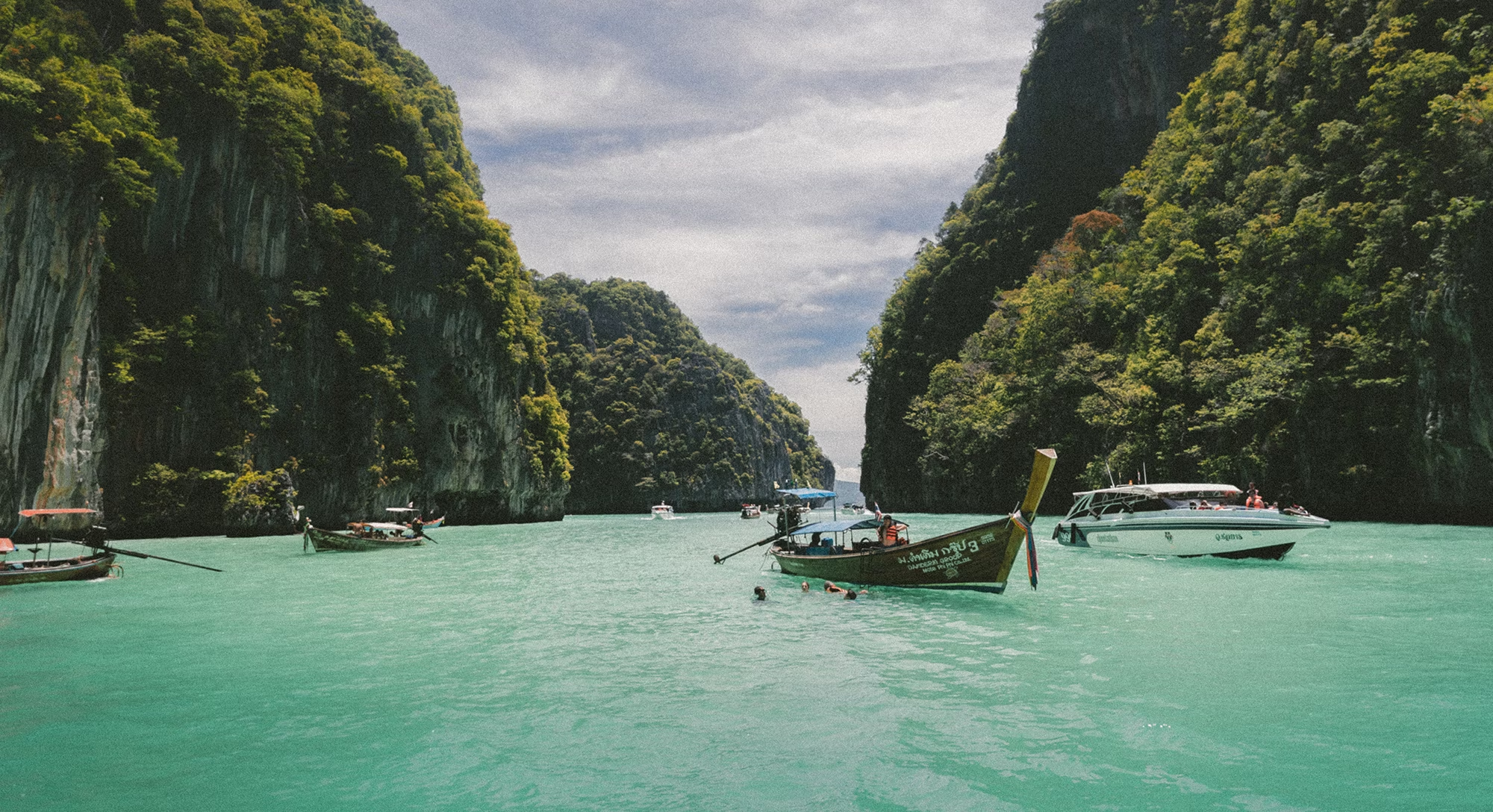 Photo by Jakob Owens on Unsplash
Photo by Jakob Owens on UnsplashIS IT SAFE TO TRAVEL TO THAILAND IN 2026?
Is Thailand safe for travelers? In general, Thailand is one of the safest countries in southeast Asia for travelers. But laws are strict, and you have to take precautions to ensure a safe and enjoyable vacation.
Where you go and what you intend to do in the country can mean different levels of safety for some travelers.
As travel site Klook notes, “like any country, it’s not without its shady corners. But as long as you know what to do – and more importantly – what not to do, I guarantee you’ll enjoy it to the fullest."
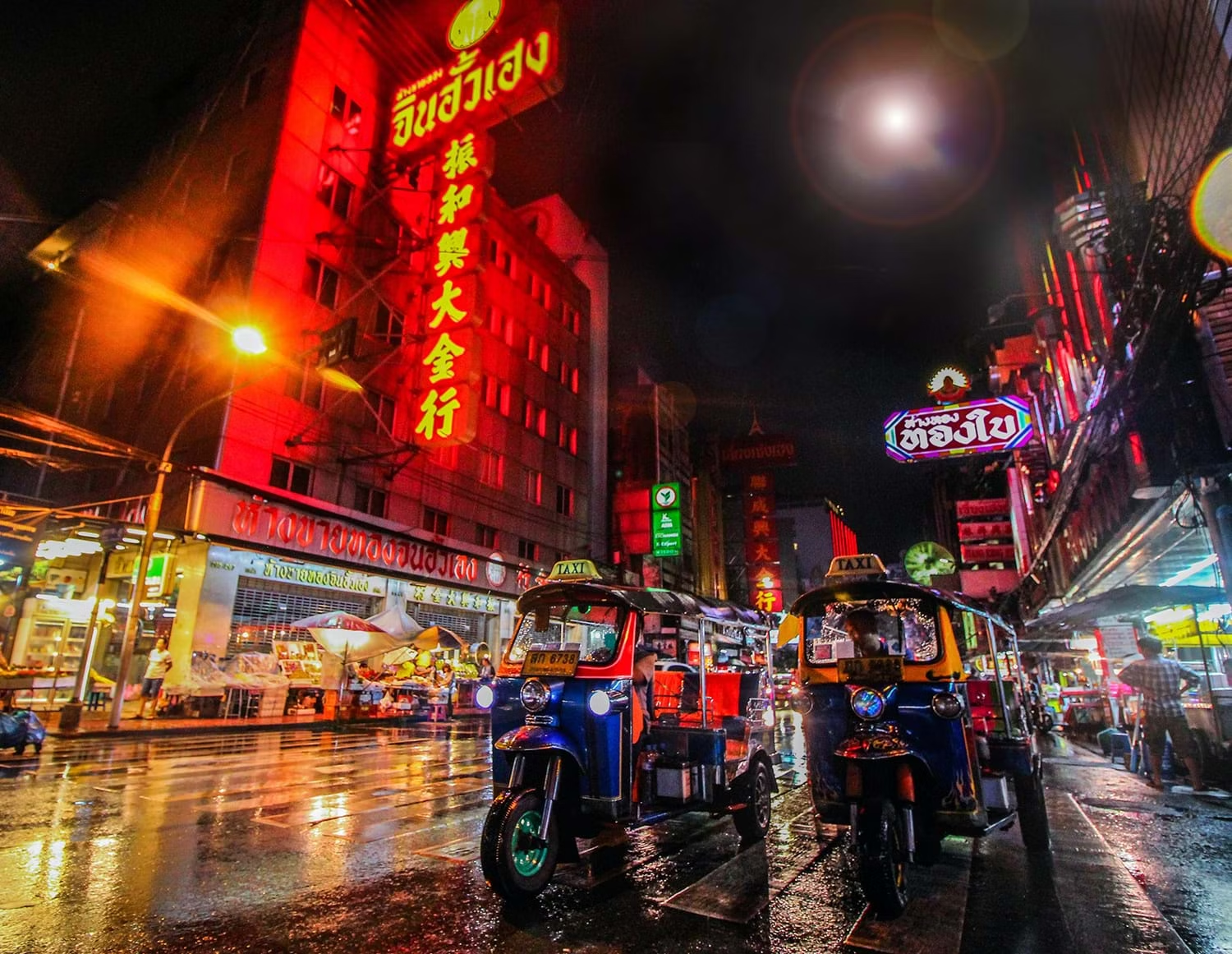 Photo by Florian Wehde on Unsplash
Photo by Florian Wehde on Unsplash
Travel Safety In Thailand: What You Need To Know
The following tips will help keep you safe in Thailand:
- Avoid demonstrations
- Keep an eye out for scams and “too good to be true” deals
- Be taxi-smart
- Watch what you say
- Be careful when you travel solo
- Hydrate and protect against the sun
- Be water-smart
- Lean on the embassy and consulates, if needed
- Buy travel insurance
Travel Safety In Thailand By The Numbers
Measures of global safety give Thailand mixed ratings. The country is:
- Ranked 86th out of 163 countries for peaceability. The latest Global Peace Index puts Thailand 86th out of 163 countries, with good marks for having few external conflicts and a low number of displaced people, middling marks for violent crime, and poor marks for having a high incarceration rate.
- Rated the 30th safest country by U.S. travelers. Thailand finished 30th out of 44 countries in Berkshire Hathaway Travel Protection’s Safest Places ratings. LGBTQ+ and big-spending travelers are much more likely than mature travelers or Gen Z'ers to see the country as safe.
- Named the 70th-safest country by Global Finance magazine. Ironically, Thailand came in one spot above the U.S. (out of 134 countries) in the magazine’s latest safety ratings.
- Given a level-2 rating from the State Department. The U.S. State Department considers Thailand to be a level-2 (exercise increased caution) country.
- Awarded low marks for its principal city. The global safety app GeoSure ranks cities instead of countries, and gives Bangkok very low marks for basic freedoms and relatively low marks for nighttime safety, and LGBTQ+ safety.
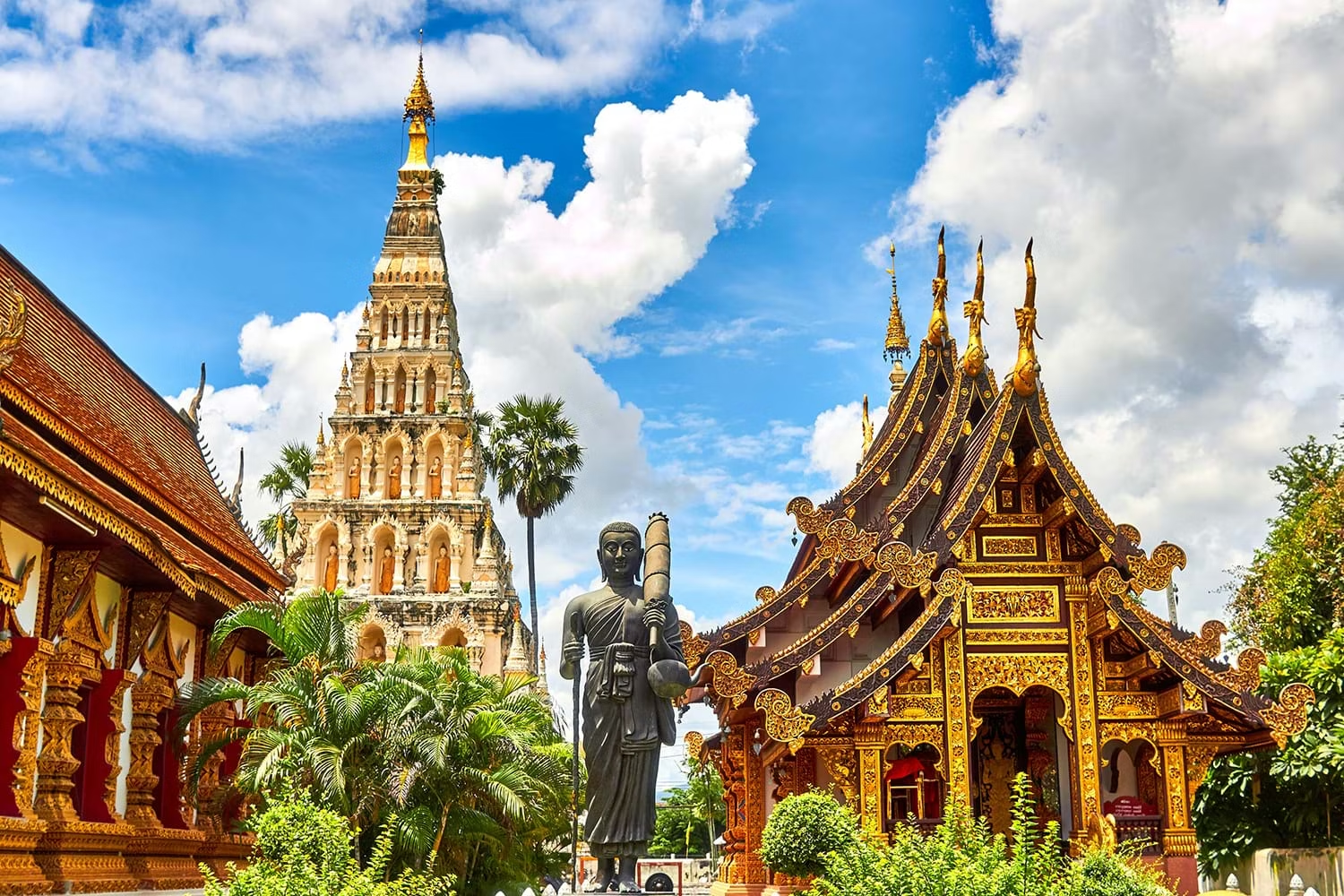 Photo by Mathew Schwartz on Unsplash
Photo by Mathew Schwartz on Unsplash
Thailand Travel-Safety Specifics
1. Attractions and medical care
While tourism is one of Thailand’s major income sources, safety is not always top-of-mind at many attractions and resorts. Beaches generally lack lifeguards, hazardous areas and activities are not always identified, and staff may not be trained or certified.
Appropriate medical treatment is often unavailable outside of major cities. As a result, the State Department recommends that U.S. citizens buy travel medical insurance with medical evacuation coverage, such as the travel insurance offered by Berkshire Hathaway Travel Protection.
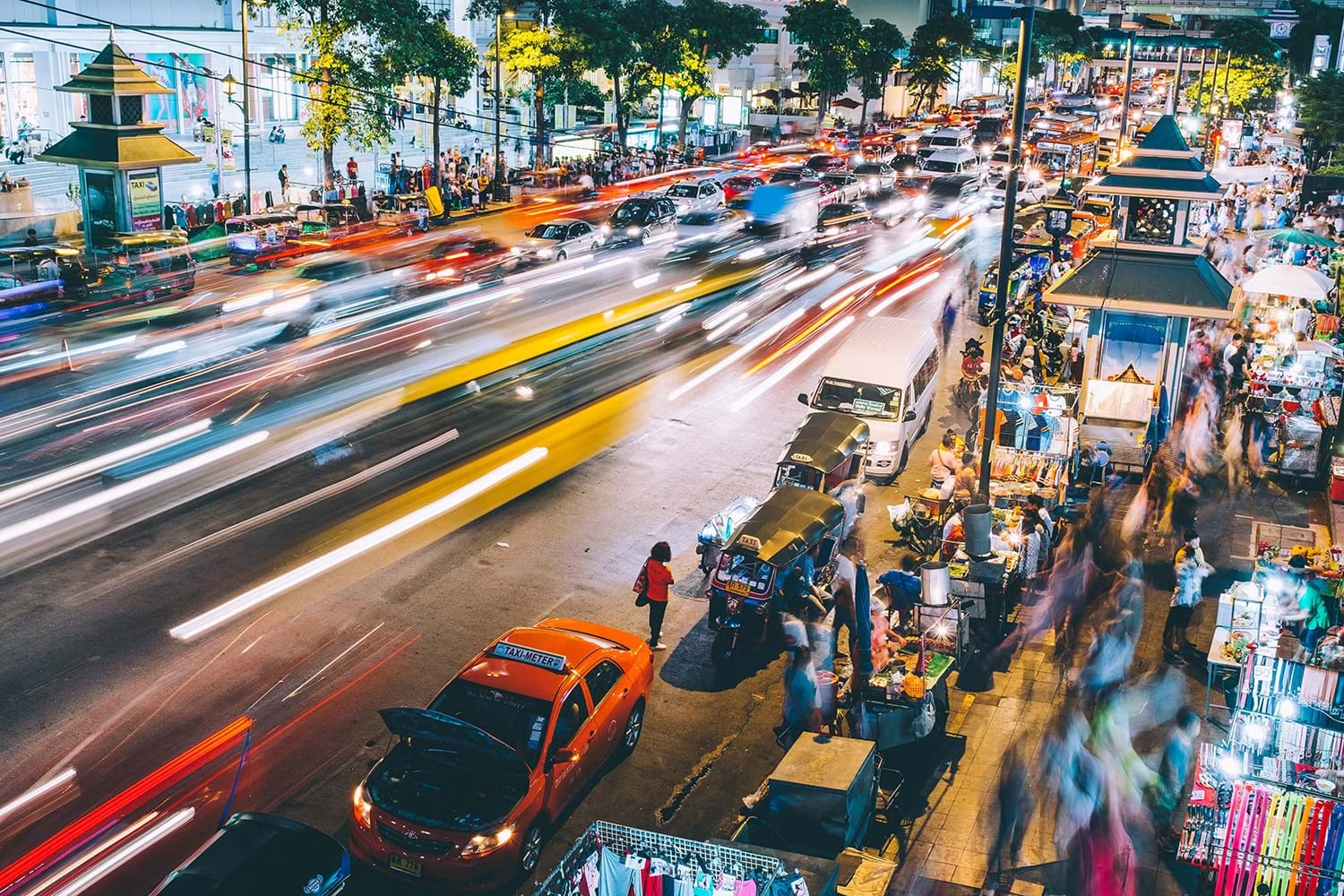 Photo by Dan Freeman on Unsplash
Photo by Dan Freeman on Unsplash
2. Terrorism and demonstrations
Periodic acts of terrorist-related violence in Thailand remain a concern, though there hasn’t been a significant incident since 2019.
According to the State Department, “Terrorists are increasingly using less sophisticated methods of attack – including knives, firearms, and vehicles” – to target:
- High-profile public events, like sporting contests, political rallies, and holiday events
- Hotels, clubs, and restaurants frequented by tourists
- Places of worship
- Schools
- Parks
- Shopping malls and markets
- Public transportation systems
Demonstrations around the U.S. Embassy and consulates are not unusual. Staying far away from these protests is an excellent idea. By signing up for the State Department’s Smart Traveler Enrollment Program (STEP), you get up-to-the-minute reports on places to avoid while traveling in Thailand.
There’s also the risk of terror-related violence in far Southern Thailand, with limited U.S. government support. In general, it makes sense to avoid this part of the country, sign up for STEP, and visit the Thailand page on travel.state.gov (link above) for updates.
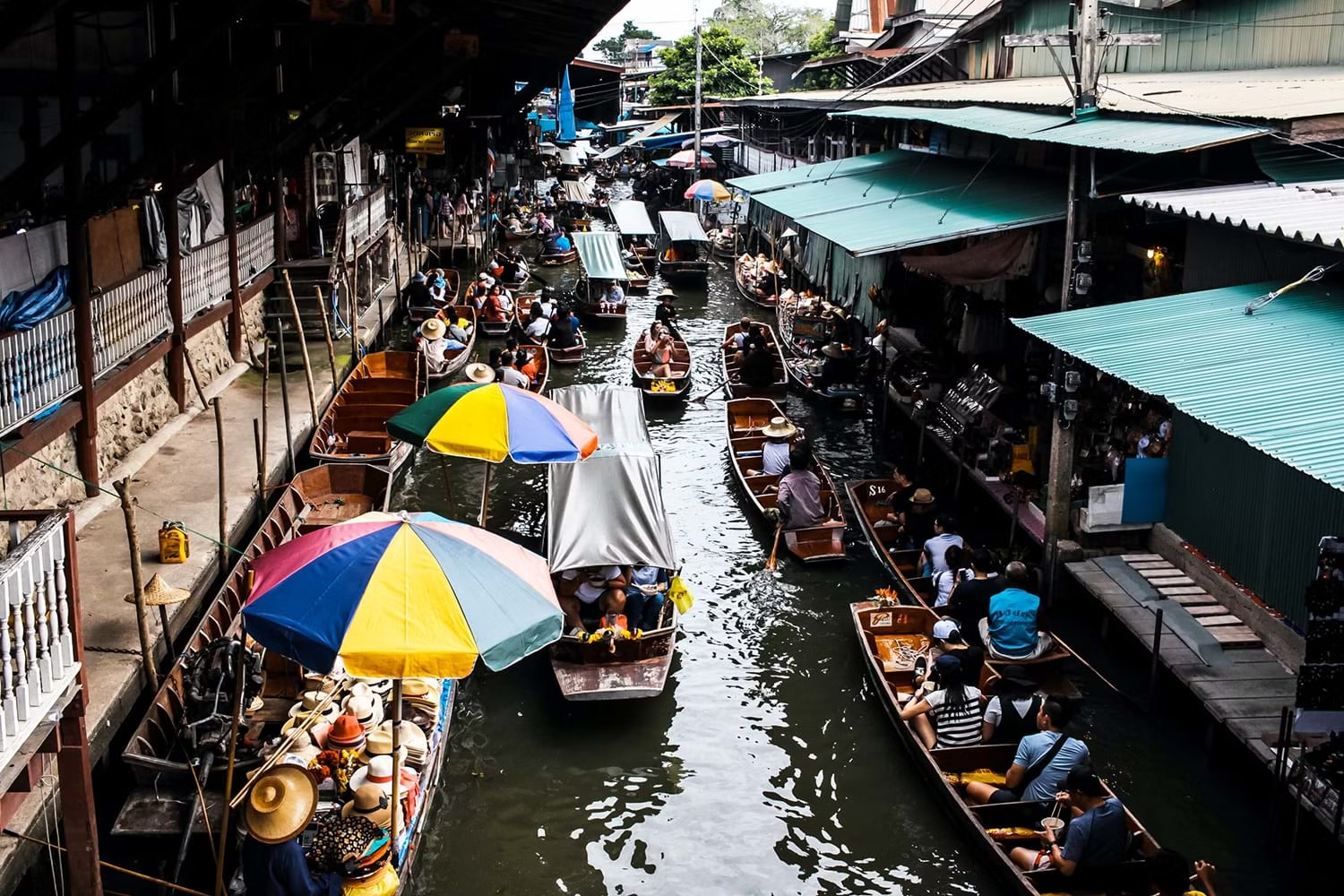 Photo by Frida Aguilar Estrada on Unsplash
Photo by Frida Aguilar Estrada on Unsplash
3. Violent crime
Violent crimes are relatively rare in Thailand, but they do occur. Crimes against women are also a possibility, often in connection with drinking and/or drug use involving one or both parties.
Unfortunately, police in Thailand are often more likely to take the side of the male in many male-female crimes, especially if the male is Thai. In such cases, the State Department recommends contacting the embassy by calling +66 (0) 2-205-4049, and engaging a local attorney.
Victims should also report crimes to the local police by calling 19, or by calling Thailand’s special Tourist Police at 1155.
4. Scams
Thailand has a fair amount of scams targeting tourists, including:
- Rental scams. Watercraft, car, or motorbike companies will hold your passport until you pay for “damages.” The solution? Never put up your passport as collateral.
- Inflated bar-tab scams. You are charged huge amounts for drinks or hit with exorbitant cover charges.
- City-tour scams. Often instigated by drivers of the three-wheeled motorized rickshaws known as tuk-tuks.
- Fake-gem scams. This seems to be prevalent worldwide.
- Internet romance scams. Generally involving online dating.
- Financial scams. According to the State Department, “scammers almost always pose as U.S. citizens who have no one else to turn to for help.” Common scams include:
- Money transfers
- Grandparent/relative targeting
- Free trip/luggage
- Work permits/job offers
 Photo by Miltiadis Fragkidis on Unsplash
Photo by Miltiadis Fragkidis on Unsplash
5. Other crimes
If you’re planning on visiting Thailand, and are thinking of violating the local laws, don’t. Crime truly does not pay in Thailand.
Being detained for immigration violations – which can include overstaying in the country on a visa – can result in confinement for up to two weeks in overcrowded facilities with poor healthcare and personal security.
Illegal drugs carry severe penalties, with long jail sentences under harsh conditions, heavy fines, or even execution for possessing, using, or trafficking.
Shoplifting can result in large fines and lengthy detention, followed by deportation. Also, possessing counterfeit or pirated goods is a crime.
Protecting Yourself In Thailand
It’s easy to travel safely in Thailand if you follow a few simple guidelines. They include:
- Be taxi-smart
- Watch what you say
- Be careful when you travel solo
- Hydrate and protect against the sun
- Be water-smart
- Lean on the embassy and consulates
- Buy travel insurance
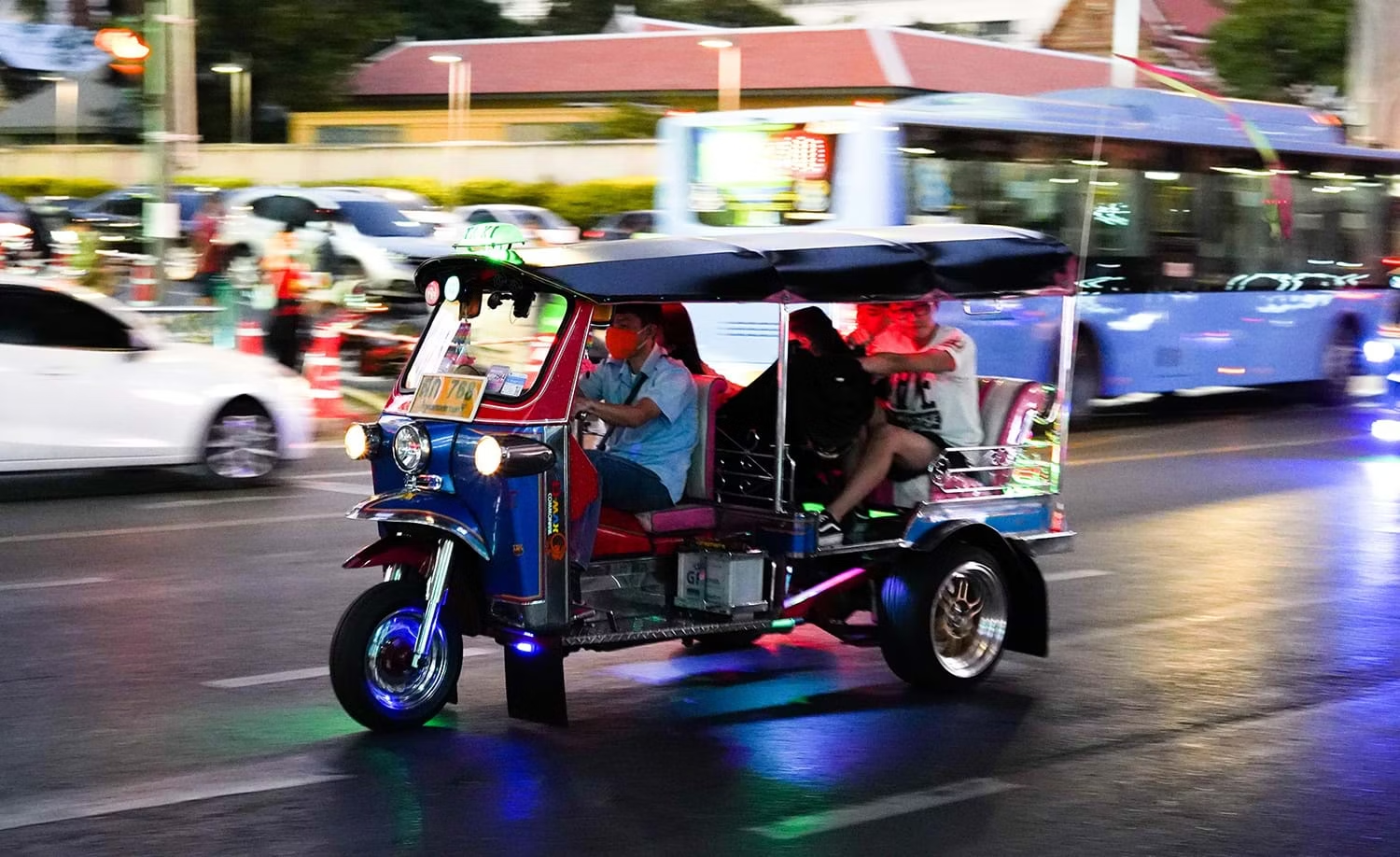 Photo by Yuya Uzu on Unsplash
Photo by Yuya Uzu on Unsplash
1. Be taxi (and tuk-tuk)-smart
Taxis are generally safe, even in Bangkok – but you need to know what’s going on. Specifically, you should:
- Watch the meter. When you get in a Thai taxi the meter must start at 35 Thai baht. If it starts at something less, get out and look for another cab.
- Avoid taxis at the airport. Instead, use public transportation from the airport’s official pick-up area, cars from the limousine counters, or a car from your hotel.
- Be clear about your destination. When you finally find a cab that meets your requirements, tell the driver your destination clearly and slowly, and don’t engage in idle chatter.
- Ask for a female cab driver. Women should speak clearly and loudly to cab drivers, tell them where you want to go and how much you’re willing to pay. If you’d feel more comfortable with a female cab driver, ask your concierge to recommend an appropriate cab service.
- Do much of the same with tuk-tuks. Much of the same advice goes for tuk-tuks. Where they differ from cabs is that you have to negotiate a fare before you get on.
The base rate for tuk-tuk fares is 50 baht. If a driver wants to charge you less, they’re likely going to take you to a tailor shop or other tourist trap and try to sell you something.
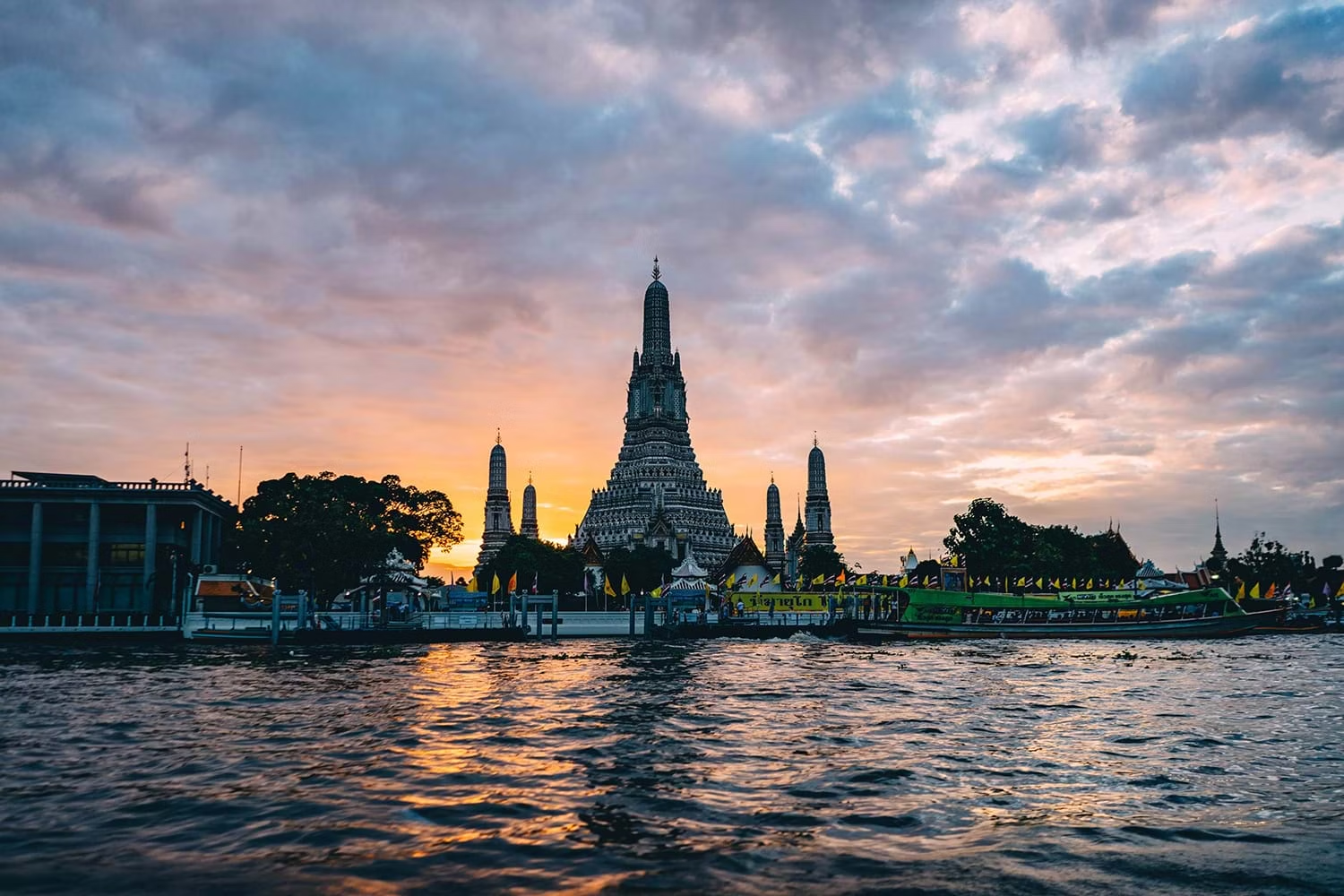 Photo by Robson Hatsukami Morgan on Unsplash
Photo by Robson Hatsukami Morgan on Unsplash
2. Watch what you say
In the words of travel blogger Traveltomtom, “Freedom of speech in Thailand might not be what it is like in your home country.”
Making a critical or defamatory comment about the royal family can get you up to 15 years in prison per offense. This includes intentionally ripping up Thai bank notes, which carry an image of the king.
Along those same lines, even criticizing a tourist venue can get you in trouble. In 2020, TripAdvisor had to come to the rescue of an American tourist who was being prosecuted for a negative review of the Sea View Resort & Spa that he put on the platform.
The case was eventually settled, but not before the tourist spent two nights in jail and TripAdvisor agreed not to put a warning label on the hotel’s page.
3. Be careful when you travel solo
Solo travel in Thailand is popular but can lead to dangerous situations, especially when alcohol or drugs are part of the mix.
If you’re a woman traveling alone, be aware that revealing or provocative clothing may be misinterpreted by Thai males. While it’s unfortunate, it’s best for women to wear modest clothing whenever possible, and carry a cover-up to throw on if taking a cab or walking down the street.
When traveling alone, exercise caution, stay near other travelers, and ensure friends or family know how to contact you.
Enrolling in STEP can help with contacts; otherwise, investigate using an app like bSafe (Android / iOS).
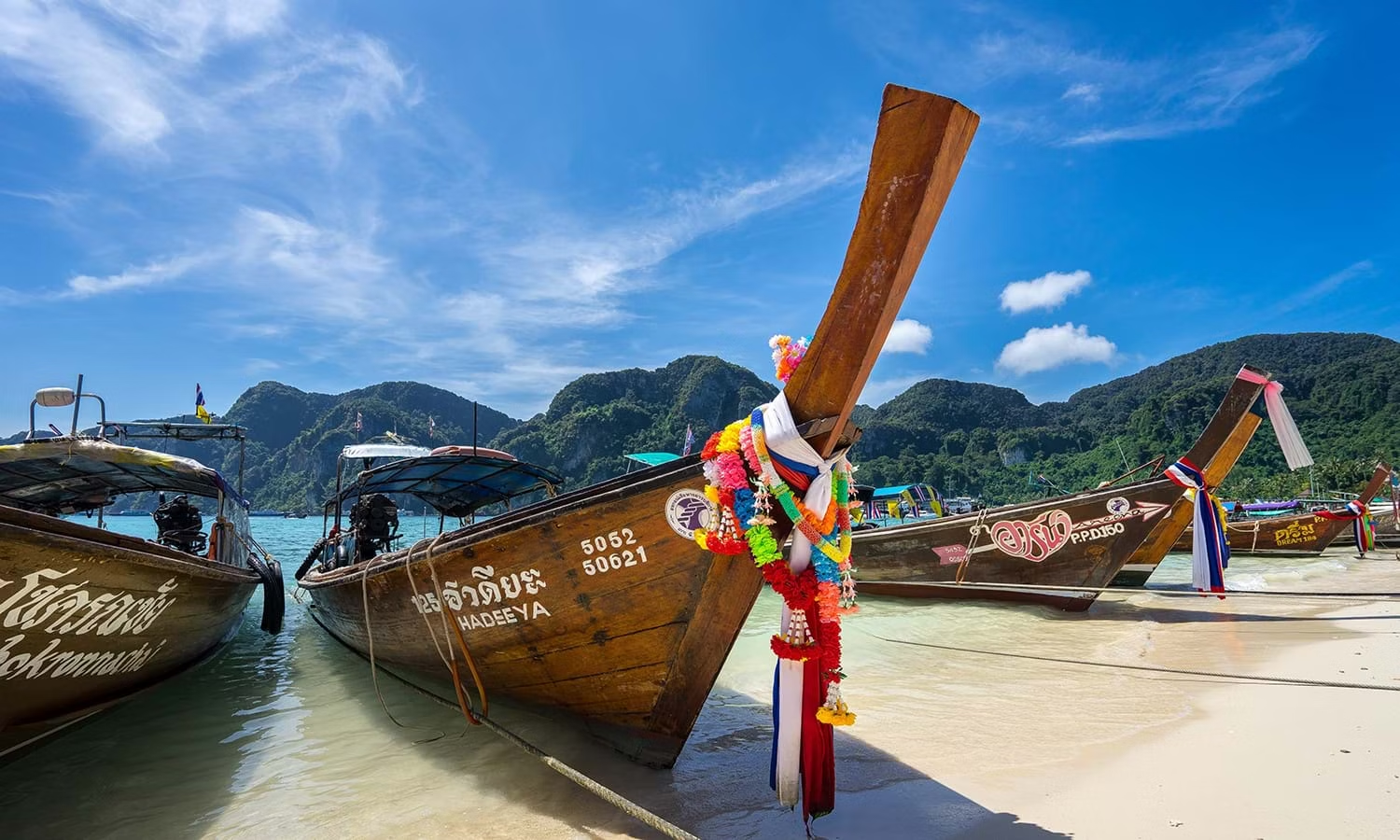 Photo by Frankie Spontelli on Unsplash
Photo by Frankie Spontelli on Unsplash
4. Hydrate and protect against the sun
Carry a bottle of water with you at all times. When you arrive at your destination, go to the nearest convenience store and pick up as many bottles of water as you can carry. It’s safe, and a lot cheaper than the minibar.
When considering tap water, tour operator Indochina Tour notes, “You’d better not drink water straight from the tap. Instead, drink bottled water or purify your drinking water with a water filter. Ice is generally made from purified water, so you don’t need to worry about ordering a drink with ice in a restaurant.”
In addition, the tropical sun is unrelenting. Wearing sun protection any time you go out (except in a monsoon) is highly recommended.
5. Be water-smart
As mentioned elsewhere, many of Thailand’s beaches lack lifeguards. Rip currents are possible, and attacks by marine life are not unheard of.
If you’re going to swim in Thailand, know what’s under the water, swim parallel to the shore, and don’t drink and swim.
If you can’t do that, stick to the pool at your resort.
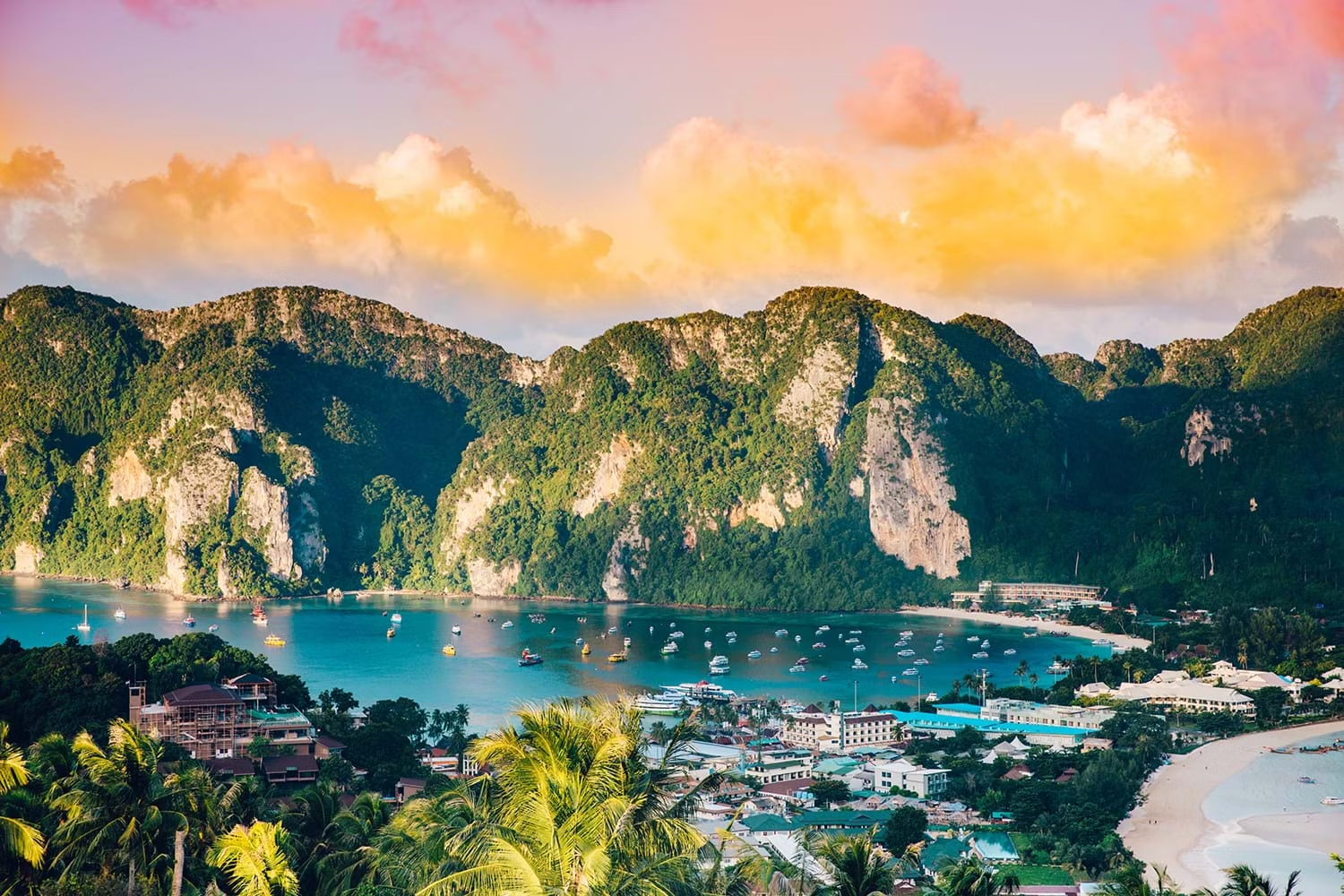 Photo by Evan Krause on Unsplash
Photo by Evan Krause on Unsplash
6. Lean on the embassy and consulates
The U.S. Embassy in Thailand and its consulates are vital resources for American travelers to Thailand. They can:
- Help you find appropriate medical care
- Help you report a crime to the police
- Contact relatives or friends with your written consent
- Explain the local criminal-justice process
- Provide a list of local attorneys
- Provide an emergency loan for repatriation to the United States and/or limited medical support
- Help you find accommodation and arrange flights home
- Replace a stolen or lost passport
Don’t know where to find the nearest embassy or consulate? The STEP program can help with that, and so can the State Department’s Smart Traveler app.
7. Buy travel insurance
Whether it’s refunding the rest of the money you paid for your resort if you have to cut short your trip for a covered reason, or airlifting you out of the jungle because of a medical emergency, travel insurance can help provide peace of mind for your next trip to Thailand.
Getting covered is easy. Get a quote today and see for yourself.
Travel Safety In Thailand: The Bottom Line
Thailand is popular for many reasons, but it’s certain that Thailand wouldn’t be such a popular destination if it wasn’t safe.
What that means is you can have a great time in Thailand easily, by just taking a few common-sense precautions.
Do that, and the exotic vacation of your dreams can be yours.
Questions About Travel Insurance?
Check out our online guide, "What Is Travel Insurance All About?" We've provided in-depth answers to all your travel insurance questions, starting with the basics.